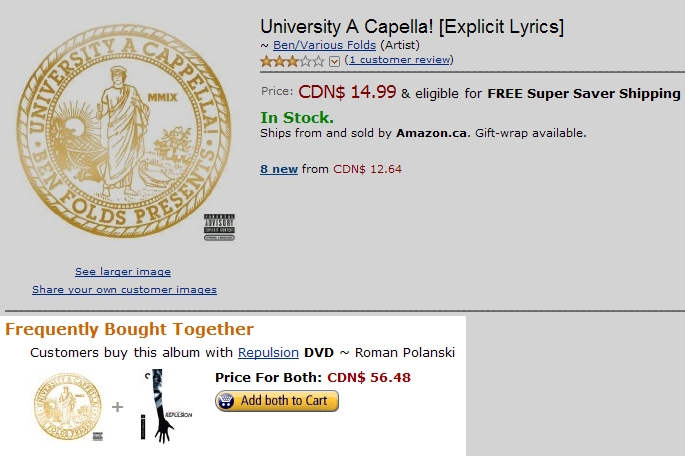First of all, get your minds out of the anatomical gutter at the mention of the word colon.
Second of all, remember that in an age of 140 character messaging and blip journalism, the redundant has its own function.
In strolling through a big box bookstore today, I realized the concept of the colon-divided title has pretty much taken over all of non-fiction. Now I completely understand the appeal of such a titling archetype. Every author wants to stamp some personal creativity onto the ink-laden tome that it's taken them weeks or years to produce. But, as the bane of a publisher's existence is not being able to convey the catchphrase content of a book in 2 seconds or less, the creative title cannot last on its own. I remember thinking myself execeeding clever in high school and university in developing the titular witticisms that allowed me to show creative flair in delivering an essay on what was usually a dry topic.
As an example of the redundancy of the archetype I take a couple of the most popular non-fiction titles on Amazon and expose the relative meaninglessness of the pre-colon text.
Greg Mortenson's Three Cups of Tea: One Man's Mission to Promote Peace... One School at a Time lends itself to such examination. Let's take the pre-colon text alone and adapt as necessary for whichever situation we can see fit.
Three Cups of Tea:
...How to Defeat Narcolepsy
...Liz, Chuck, and Bill and the Line to the British Throne
...Rocky III, The A-Team and After
How about, instead of the post-colon The Story of Success after Malcom Gladwell's pre-text Outliers, we substitute:
Outliers:
...A New Age Guide to Sunbathing
...Rural Endurers in an Urban Age
...How Pony Boy Stayed Gold (alright, I know this one's a stretch)
And to wrap the point, Mark R. Levin's Liberty and Tyranny: A Conservative Manifesto could just as easily be summed up with
Liberty and Tyranny:
...The Forbidden Love of a French Statue and a T-Rex
...The Making of Metalstorm 2: The Return of Jaryd Syn
...The Auteur Dictatorship of Anchors Aweigh
Seeing that pre-colon text exists strictly for creative reasons (albeit sometimes allegorical or metaphoric statement) one wonders why practice is ever-increasing...
And so we go back to the beginning. There is purpose in the redundant. In as much as the colon archetype of titling has become a nuisance by its very success, and that the pre-colon text adds nothing substantial to the content indication, why have it at all?
There is enjoyment in words. I can echo the message "love sucks" in two words, two tweets, two paragraphs, two pages, two chapters, two books, or two lifetimes. Tom Waits can do it in gutteral imagery. Shakespeare can do it in ten syllable cadences. And Ezra Pound can wax psychotic in a dozen languages and pictographs to all achieve a similar message.
So while this entire post could've been condensed to "Colons in non-fiction titles maybe trite, but sometimes offer artistic entertainment value", it would have hardly been as fun to write.








